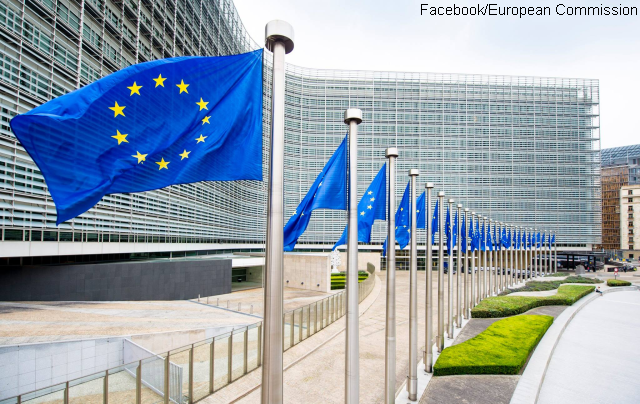The Challenge of Migration
Faced with the most serious refugee crisis after WWII, the European Union has managed to bring a radical change with respect to the management of migration and the protection of borders

Corina Cristea, 22.03.2019, 13:24
Faced with the most serious refugee crisis after WWII, the European Union has managed to bring a radical change with respect to the management of migration and the protection of borders. However, additional efforts are needed for the EU migration policy to be able to cope with future challenges. Recently, the European Commission has reiterated its call for the drafting of a common EU strategy on migration, including the thorny issue of migrants’ reception after disembarking on community space.
In a press release, the European Commission says migration remains a sensitive topic in the context of the European elections, which causes fears with respect to the growing popularity of eurosceptic parties, while the EU states remain in diverging positions vis-à-vis the Dublin Regulation and the establishment of a common asylum policy over different points of view with regard to the mandatory distribution of migrant quotas among EU member states, an initiative rejected by some east-European countries, especially those in the Visegrad Group. Europe is no longer experiencing the migration crisis we lived in 2015, but structural problems remain, warns the first vice-president of the European Commission Frans Timmermans, recalling that, in the last four years, the European Union has seen significant progress and obtained concrete results in addressing the challenges of migration.
In very difficult circumstances, we acted together, Timmermans also said, adding: Continuing to work together through a comprehensive approach, in solidarity, and with a fair sharing of responsibility, is the only way forward if the EU is to be equal to the migration challenge. In its latest report, the Commission shows that 2018 saw an almost 90% drop in the number of people who tried to cross the Mediterranean Sea to reach Europe. Centralised data also show that migration to the EU via Greece and Italy diminished, but grew via Spain, in the western part of the Mediterranean Sea.
The European Commissioner for Migration, Dimitris Avramopolous, explains:
In the Western Mediterranean, Spain is under particular migratory pressure. We continue to stand by Spain as we have done and will continue doing with all the Member States under pressure. We already provided nearly 36 million euros of emergency assistance last year and we are ready to provide Spain the technical, financial, and political support it needs. At the same time, it is also clear that we need to strengthen our relationship with Morocco. […] We look forward to developing a closer, deeper and more ambitious partnership with Morocco. This begins by completing the implementation of the 140 million euro support package for Morocco that focuses on improving their border management capacity.
In the last three years, the number of arrivals has dropped constantly to reach today a figure that represents around 10% of the maximum level reached in 2015. But this drop is not guaranteed in the future if the migration pressure is maintained on the borders. Therefore, it is essential to take measures for each of the four pillars of European agenda on migration. This refers to combating the factors that favour irregular migration, a stricter border control, protection and asylum measures, as well as legal migration and integration.
Here is Dimitris Avramopoulus again:
Our external borders are better managed and better protected than ever before. The European Border and Coast Guard Agency brought about a steep change in our common border management culture. But we want to help and support Member States even more in securing our external borders. […] But no matter how secure and protected our external borders are, Europe will still have to uphold its duty to provide assistance to those fleeing war or persecutions. Europe will still need to better manage migration within Europe, both of those staying legally and irregularly. For instance, we have to be able to stop secondary movements or asylum shopping. This is why we equally need to finalize the reform of our Common European Asylum System. […] I welcome that the Romanian Presidency already started working towards putting in place such arrangements, and I count on Member States to engage.
Moreover, the European Commission asks member states to encourage legal migration and integration as factors of discouraging irregular arrivals.






























